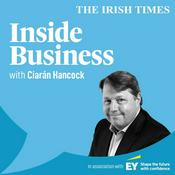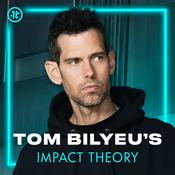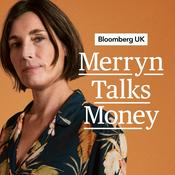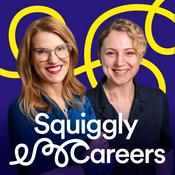105 episodes
- Global economic uncertainty shows no sign of abate and most organisations face a challenging 2026. Headcount and budgets are under intense scrutiny and internal communication carries the additional threat of, in some quarters, GenerativeAI offering a plausible and more cost-efficient alternative to human contribution.
Under such intense pressure, how can internal communicators successfully advocate for the value they bring?
This episode, Dom. Cat and Jen chat with Colin Archer, Head of Communications for Spirax Sarco. With a wealth of experience spanning several decades, Colin succinctly argues against using ROI to measure internal communication. This is both transactional and reductivist. A more effective measure is that of impact – showcasing the powerful effect that the thoughtful use of words and language can have on human behaviour.
About Colin Archer
Colin Archer has worked in Internal Communications across different sectors and industries and loves working with people and cultures. His reason for working in the profession comes from a strongly held view that if we are to spend such a lot of our life in work, then we should enjoy it and certainly not waste any of the precious hours we have in something which doesn’t make us feel good.
His strategies encourage deep personal connection with purpose, and with other people, to achieve significant steps forward for the organisations he has worked with.
A Fellow of the IoIC and great believer in extending our sphere of influence to make things better for everyone who is touched by our work, Colin cares deeply about bringing people and ideas together through impactful communication
Find Colin on LinkedIn: https://www.linkedin.com/in/colin-archer-fiic-072a306/ - Whether its geopolitical turmoil, AI, climate chaos, stakeholder activism or intergenerational differences, there’s no shortage of issues inhibiting organisational progress. But this is hardly surprising when we consider so many of the operating frameworks still in use today are now decades old.
It’s time to introduce new ways of workplace organising.
Dom, Jen and Cat welcome global HR thinker Perry Timms to this episode to introduce the concept of polymorphic organising. They examine communication as a primary organisational linchpin and explore what this means for internal communicators.
About Perry Timms
Perry Timms has over three decades of experience in business change and performance, with the last 23 years in HR/Organisation Development. He ranked Number 1 in HR's Most Influential Thinkers 2022 (his fifth inclusion in that list) and is now in the HR Most Influential Hall of Fame. He is a 4x Guest Professor, a 2x TEDx speaker, a 3x Author, 4x Engagement 101 Global Influencer plus 2024’s Global People & Culture Icon. Perry is a Chartered Member of the CIPD, a Fellow of the RSA and in 2024 was honoured with a Lifetime Achievement Award for his work in self-managed, democratic organisations, and a Thinkers 360 Top 100 Global HR Influencer.
Perry on LinkedIn: https://www.linkedin.com/in/perrytimms/
Perry on Substack: https://pthr.substack.com/
PTHR website: https://pthr.co.uk/
Additional Company Information
Perry founded People and Transformational HR 13 years ago. The venture is a (re) Certified BCorporation, a WorldBlu Certified Freedom-Centred organisation, a Global Top 50 Self-Managed Organisation awarded the Haier Institute’s RDHY Certification; is a Gold Standard 4-day Working Week, a 2023 Top 50 EMEA Inspiring Workplace, a Top 2 Most Flexible Workplace on the Flexa Index, a Living Wage employer, and a Climate Positive enterprise. - As economic instability continues to confound politicians across the spectrum, the UK labour market remains fragile. With more young people than ever before not in education, employment or training (NEET) and the ever-present threat of AI-induced job losses, internal communicators must find novel ways to marry the delivery of key organisational information with the concerns of increasingly stressed and anxious workforces.
In this episode, Neil Carberry shares his latest reflections on the current and emergent state of the UK labour market, offering insights for the internal communication professionals as they consider their priorities for 2026.
About Neil Carberry OBE, Chief Executive, REC
Neil Carberry was appointed as Chief Executive of the Recruitment and Employment Confederation in June 2018. He began his career in recruitment in 1999, before doing a post-graduate degree in Human Resources at the London School of Economics and specialising in employment relations. Joining the CBI in 2004, he led the CBI’s work on the labour market, skills, energy and infrastructure. Neil spent a decade as a member of the council of the conciliation service ACAS and two terms as member of the Low Pay Commission, which recommends UK minimum wages. He was appointed an OBE in the King’s Birthday Honours List of 2025. Neil is a Chartered Fellow of the CIPD, a Fellow of the RSA and a member of the Company of HR Professionals. A seven-time nominee to the SIA staffing100 in Europe, Neil is also on the board and exec of the World Employment Confederation and of a Multi-Academy Trust in England. Neil is an RFU-qualified rugby referee and coach and is one of the 8000 co-owners who made Heart of Midlothian the UK’s biggest fan-owned football club.
Find Neil on LinkedIn: https://www.linkedin.com/in/neil-carberry-obe-95948938/
REC: https://www.rec.uk.com/ S14, Bonus Episode: Exploring the future of internal communication whitepaper, with Joe Salmon
17/12/2025 | 43 mins.This year, the IoIC published a new whitepaper to explore the future of internal communication. As the only professional body dedicated to internal communication, it is invested in understanding how workplace communication will change and what this means for its members. It strives to understand both risk and opportunity.
Next-generation technology paves the way for doing more human work – work that no technology can replicate. In increasingly digital environments, fostering human connection to create the cultural conditions for peak performance and flourishing is set to become the most vital of organisational enablers.
In this episode, Jen, Dom and Cat are interviewed by IoIC board member and fellow Joe Salmon. Together they discuss the factors driving change for internal communication and ways in which internal communicators can prepare for an altogether exciting future.
Joe has over two decades of internal comms experience, including in-house, consultancy, and agency roles. He specialises in leadership communications, employee engagement, organisational culture, and communicating change.
Joe is currently Director Corporate Communications at Iron Mountain. His career highlights include senior communication roles at Vodafone, BT, Inmarsat, Spotify, and Hill & Knowlton Strategies. In these roles, he designed and developed compelling employee campaigns to help global clients grow from the inside out by building pride, advocacy, a sense of belonging, and excitement.
Joe is an elected Board Director and Fellow at the Institute of Internal Communications, a trailblazer for the UK Black Comms Network, and a mentor to others in the IC profession. He holds a Post Graduate Diploma in Internal Communication Management. He is also a regular event host, panelist, guest speaker, and awards judge, and was featured on the PRovoke Media Innovator 25 list.
About Joe Salmon FIIC
Joe has over two decades of internal comms experience, including in-house, consultancy, and agency roles. He specialises in leadership communications, employee engagement, organisational culture, and communicating change.
Joe is currently Director Corporate Communications at Iron Mountain. His career highlights include senior communication roles at Vodafone, BT, Inmarsat, Spotify, and Hill & Knowlton Strategies. In these roles, he designed and developed compelling employee campaigns to help global clients grow from the inside out by building pride, advocacy, a sense of belonging, and excitement.
Joe is an elected Board Director and Fellow at the Institute of Internal Communications, a trailblazer for the UK Black Comms Network, and a mentor to others in the IC profession. He holds a Post Graduate Diploma in Internal Communication Management. He is also a regular event host, panelist, guest speaker, and awards judge, and was featured on the PRovoke Media Innovator 25 list.- Award-winning author and business executive Margaret Heffernan has written extensively about uncertainty. Her book Uncharted: How to map the future became an instant bestseller and featured on Bloomberg’s Best Books of 2021 list. Her most recent book Embracing Uncertainty: How writers, musicians and artists thrive in an unpredictable world outlines how creatives use ambiguity to stimulate innovation and novel ideas.
In this episode, Jen, Dom and Cat chat with Margaret to her views on the power of conversation. In ambiguous and chaotic work landscapes, convening group discussions to hear diverse perspectives and harness collective intelligence is a new leadership meta-skill.
About Margaret Heffernan
Dr. Margaret Heffernan produced programmes for the BBC for 13 years. She then moved to the US where she spearheaded multimedia productions for Intuit, The Learning Company and Standard&Poors. She was Chief Executive of InfoMation Corporation, ZineZone Corporation and then iCast Corporation, was named one of the “Top 25” by Streaming Media magazine and one of the “Top 100 Media Executives” by The Hollywood Reporter.
The author of six books, Margaret’s third book, Willful Blindness : Why We Ignore the Obvious at our Peril was named one of the most important business books of the decade by the Financial Times. In 2015, she was awarded the Transmission Prize for A Bigger Prize: Why Competition isn’t Everything and How We Do Better, described as “meticulously researched…engagingly written…universally relevant and hard to fault.” Her TED talks have been seen by over 13 million people and in 2015 TED published Beyond Measure: The Big Impact of Small Changes. In 2020, she published Uncharted: How to map the future, which quickly became a bestseller and was nominated for the Financial Times Best Business Book award, was one of Bloomberg’s Best Books of 2021 and was chosen as the “Medium Best of the Best” business book. 2025 saw the publication of Embracing Uncertainty: How Writers, Musicians and Artists Thrive in an Unpredictable World, described as ‘a timely, insightful book….Heffernan highlights what it takes to excel in turbulent times.’
In 2024, she was inducted into the Thinkers50 Hall of Fame, in recognition of her lasting impact on management thinking. She is a Professor of Practice at the University of Bath, Lead Faculty for the Forward Institute’s Responsible Leadership Programme and, through Merryck & Co., mentors CEOs and senior executives of major global organizations. She chairs the board of DACS and is a parish councillor.
Find Margaret on LinkedIn: https://www.linkedin.com/in/margaret-heffernan-ab5205/
Margaret’s website: https://www.mheffernan.com/
Margaret on Substack: https://heffernanm.substack.com/
Margaret’s TED talks:
https://www.ted.com/talks/margaret_heffernan_the_human_skills_we_need_in_an_unpredictable_world
https://www.ted.com/talks/margaret_heffernan_the_dangers_of_willful_blindness
More Business podcasts
Trending Business podcasts
About The Future of Internal Communication
The Future of Internal Communication podcast is a series commissioned by The Institute of Internal Communication.
Organisations today face widespread and continuous disruption. The way communication takes place within and across teams, departments and business units is more critical than ever.
The podcast hosts subject matter experts from within and outside internal communication, each sharing their insights on the future of work and the role of communication as an essential driver of workplace trust, connection, culture, innovation, resilience and performance.
Hosts Jennifer Sproul, Dominic Walters and Cat Barnard explore opportunity for internal communicators. In increasingly digital, data driven, distributed and on-demand work landscapes, their conversations with thought-leaders examine the human side of work.
Podcast websiteListen to The Future of Internal Communication, Down To Business and many other podcasts from around the world with the radio.net app

Get the free radio.net app
- Stations and podcasts to bookmark
- Stream via Wi-Fi or Bluetooth
- Supports Carplay & Android Auto
- Many other app features
Get the free radio.net app
- Stations and podcasts to bookmark
- Stream via Wi-Fi or Bluetooth
- Supports Carplay & Android Auto
- Many other app features


The Future of Internal Communication
Scan code,
download the app,
start listening.
download the app,
start listening.




































